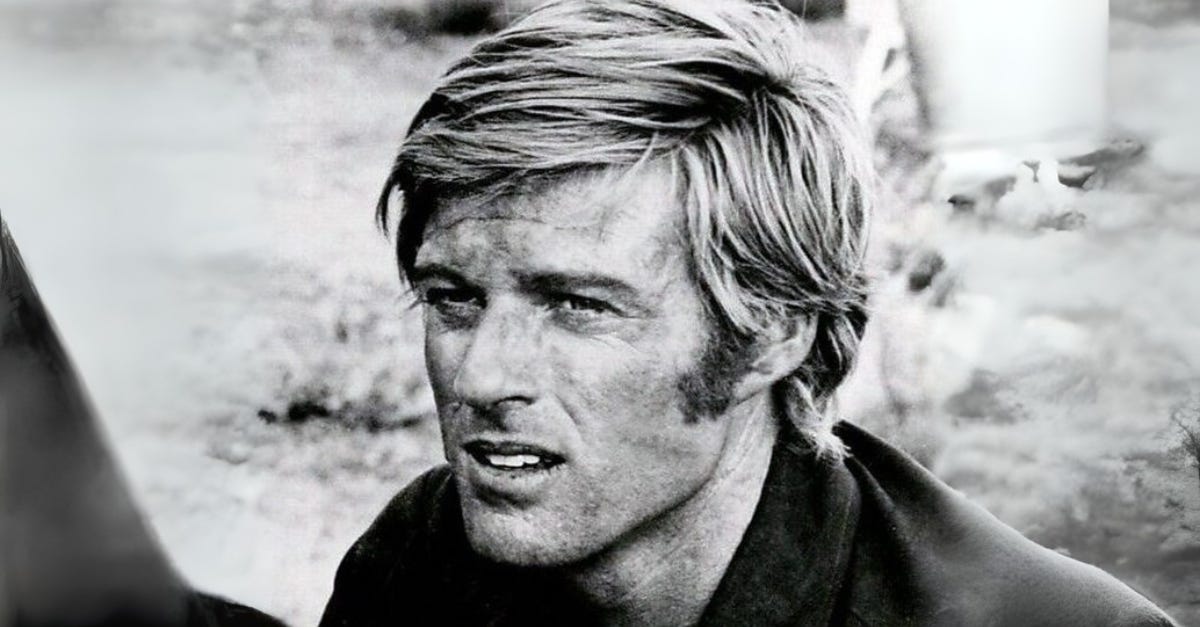Content lessons from Robert Redford
What Robert Redford taught us about authentic storytelling
Gary Bloomer | SHAKING THE TREE # 249
The tributes are pouring in for American actor, Robert Redford, who died on September 16, 2025 at the age of 89, and rightly so.
The man was a Hollywood icon.
But most of the obituaries are missing the point for folks like us—the creators, the marketers, the entrepreneurs trying to find our voice in a crowded digital world.
We’re not just mourning a movie star. We’re mourning the loss of a brilliant content strategist.
Before you dismiss this opinion as crazy, take a moment to hear me out.
Redford’s career wasn’t just a string of hits; it was a masterclass in building a legacy through powerful, authentic storytelling. He didn’t just play the game; he changed the entire playing field. And he left behind a playbook we’d be fools to ignore.
1. The power of a strong, silent brand (Butch & Sundance)
Thankfully, Redford knew it wasn’t necessary to be the loudest guy in the room. He often said more with a squint than most actors could with a monologue. This wasn’t a lack of something to say; it was a profound understanding of how to say it.
In Butch Cassidy and the Sundance Kid (1969), Redford’s understated, slow burn performance as the Sundance Kid was the counterpoint to Paul Newman’s charismatic Butch Cassidy chatterbox. Sundance is quiet, unassuming, competent, and lethal. You trust him because he doesn’t need to prove anything to anyone.
The content lesson: Your content doesn’t need to shout to be heard. In fact, the constant, noisy desperation for clicks often has the opposite effect. Focus on substance. Be the strong, silent type in your niche—the one that delivers immense value without the flashy, empty hype. Let the quietness of your work speak so loudly people lean in to listen to what you’ve got to say.
2. Create your own platform (Sundance Institute)
This is the big one. Redford saw the Hollywood system was broken, with the big studios regularly acting as story gatekeepers, while unique, daring voices were being shut out. So what did he do? He didn’t complain. He didn’t wait for permission.
He bought a piece of land in Utah and built Sundance.
He didn’t just build a film festival; he built an entire ecosystem for independent storytelling. He created a platform where new creators could be discovered and nurtured.
The content lesson: Stop waiting for permission. Stop praying for a feature on someone else’s platform. Build your own.
See your newsletter as your Sundance. Likewise your podcast, your YouTube channel, your blog—these are your platforms.
They are your sovereign territory where you set the rules, where you champion the voices you believe in (including your own), and where you’ll build a community around your unique vision. Don’t just consume content; create the stage it’s presented on.
3. Curate to elevate (The Sundance Film Festival)
Sundance wasn’t just a free-for-all. It became the most influential film festival in the world precisely because of its fierce curation. The "Sundance" label became a mark of quality, of authenticity, of artistic courage.
Redford understood that his value wasn’t just in creating his own work, but in using his influence to curate and elevate the work of others. He became a tastemaker.
The content lesson: You are a curator. Your audience is overwhelmed. Your greatest value can be filtering the world for them. Share the work of other brilliant minds in your field. Credit your sources. Build "listicles" of people to follow. By curating excellence, you become a hub of value and taste. You don’t diminish your own light by shining it on others; you amplify the entire room.
4. Authenticity is your greatest asset (All Is Lost)
Near the end of his acting career, Redford took on All Is Lost, a film with almost no dialogue. It was a raw, physical performance against the elements. It was terrifyingly authentic. There was no movie star persona to hide behind—just a man fighting to survive.
It was a stark reminder of what made him a star in the first place: a palpable, undeniable authenticity.
The content lesson: Your audience has a built-in BS detector. They are exhausted by flimflam, corporate-speak, and AI-generated blandness.
The greatest currency you have as a content creator is your unique perspective, your voice, your flaws, and your stories. Instead of hiding behind jargon, rather than setting out to sound like everyone else, be vulnerably, unapologetically yourself. That’s what people will connect with and remember.
The final scene
Robert Redford’s legacy isn’t just the movies he made. It’s the countless filmmakers, stories, and voices he enabled that would have otherwise been silenced.
He taught us that true influence isn’t about having the most lines; it’s about building the best stages.
So, be less corporate hotshot and more Sundance.
Be strong and silent in your value.
Build your own platform.
Curate with fierce passion and powerful integrity.
And above all, never, ever stop telling your authentic story.
Now get to work.
As always, thanks for reading.
—Gary
Feel free to follow me on Twitter and LinkedIn
P.S. If you found this useful, share it with another creator who needs an ego check (in a nice way). Want more unfiltered takes on content creation? Join my newsletter. No fluff, just the stuff that works.
Next time on Shaking the Tree: 250 articles later …
ABOUT THE AUTHOR: Originally from the U.K., Gary Bloomer is a writer, branding advocate, marketing specialist, and an award-winning graphic designer.
His design work has been included in Creative Review (one of the UK’s largest design magazines). Since 2009, he has answered over 5,000 marketing and business questions in the Know-How Exchange of MarketingProfs.com, placing him among the top 3% of contributors. He lives in Wilmington, Delaware, USA.

